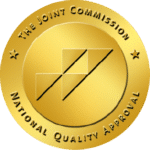
Image Source: FreeImages
Obsessive-compulsive disorder (OCD) can be a tricky condition to deal with, especially because there aren’t many ways to explain it. In fact, it can be rather strange for anyone who has never experienced the symptoms before. If you have been struggling with this condition, you are not alone. According to statistics from the National Institute of Mental Health, about 1 in 40 adults in the U.S. suffers from OCD on a regular basis. OCD is an anxiety disorder that can manifest itself in different ways but usually revolves around obsessive thoughts and compulsive actions or rituals as a result of these thoughts. People who struggle with OCD often recognize that their thoughts and behaviors are irrational but cannot stop them from occurring anyway. This creates a vicious cycle that is difficult to break out of without help. Luckily, there are several ways to treat your symptoms so you can live a more comfortable life once again.
What is OCD?
OCD is an anxiety disorder that can manifest itself in different ways but usually revolves around obsessive thoughts and compulsive actions or rituals as a result of these thoughts. People who struggle with OCD often recognize that their thoughts and behaviors are irrational but cannot stop them from occurring anyway. This creates a vicious cycle that is difficult to break out of without help.
OCD is often categorized into two main groups: The first is known as the “checking” type, which includes compulsions like constantly checking your stove to make sure it is not on fire or your front door to make sure it is locked. The second is referred to as the “washing” type, which includes compulsions like having to wash your hands until they are red raw or having to clean your house until everything is spotless.
How Does OCD Affect Your Life?
People with OCD are often diagnosed with an inability to let go of certain thoughts. They may be plagued by fears of getting them on a plane and not being able to turn back, or worry that their loved ones will become sick or suffer an injury. Those with OCD may be obsessed with notions such as being “clean,” “perfect,” or “orderly.” In fact, it’s not uncommon for those with OCD to spend hours every day trying to achieve perfection and control. This may take the form of spending excessive time reorganizing your cupboards or cleaning your home until everything is spic and span. It can also show up in other ways that can affect your life in a negative way, such as constantly checking your stove to make sure it is not on fire or your front door to make sure it is locked.
How to Treat OCD?
There are several ways to treat your OCD symptoms, including cognitive behavioral therapy, exposure therapy, and medications. Cognitive behavioral therapy is a form of psychotherapy that can help you reprogram your thought patterns so that you can let go of your obsessions and compulsions. During this therapy, you discuss your thoughts and fears with your therapist and learn how to challenge them. Exposure therapy applies your new skills to real-life situations that trigger your obsessive thoughts. This treatment method is used to help you face your fears and remove the shame and guilt that often accompanies OCD. Medications are available to treat OCD symptoms, including antidepressants such as selective serotonin reuptake inhibitors (SSRIs) and serotonin and norepinephrine reuptake inhibitors (SNRIs). Antidepressants can help reduce OCD symptoms, such as anxiety and obsessive thoughts, although they take some time to work.
Intensive Outpatient Program for Mental Health
An intensive outpatient program (IOP) for mental health can help you learn how to manage your OCD symptoms. This program usually consists of daily therapy sessions, along with the opportunity to meet with a psychologist once a week. IOPs are often used as an alternative to inpatient treatment because they allow you to keep your life as normal as possible during treatment. These programs can last anywhere from a few months to a year, depending on your individual needs.
Exposure Therapy
Exposure therapy is a type of therapy that can help you face the things that trigger your OCD symptoms. During this therapy, you confront your fears while receiving support and guidance from a therapist. Exposure therapy can be done in person or remotely, and it can help you learn how to let go of your OCD symptoms so that you can get back to your normal life.
Exposure therapy can be particularly effective when combined with cognitive behavioral therapy, or CBT. CBT helps you identify negative thought patterns and replace them with healthier ones. Together, these two treatments can help you overcome OCD and get your life back.
Medications for OCD
Antidepressants are the most commonly prescribed medications for OCD. They are often used to treat other mental health disorders as well, including anxiety, depression, and eating disorders. Some antidepressants are SSRIs, which work by increasing serotonin levels in the brain, and others are SNRIs, which affect serotonin and dopamine levels.
While antidepressants are helpful for many people with OCD, they aren’t right for everyone. Choose a psychiatrist who specializes in OCD and has experience treating patients with antidepressants, since this combination is most effective for OCD treatment. With the right medication and a treatment plan that works for you, you can overcome OCD and get your life back.
Cognitive Behavioral Therapy
Cognitive behavioral therapy (CBT) is a common OCD treatment that has shown very promising results. CBT has been proven to reduce OCD symptoms in up to 70% of patients. This therapy helps you identify your negative thoughts and become less reliant on compulsive behaviors to cope. It is also helpful for managing symptoms of other mental health disorders, such as anxiety and depression.
CBT includes three components that work together to improve your mental health. First, you will be assigned homework exercises that will train you to think differently and break unhealthy habits. Second, you will learn coping techniques that help reduce anxiety and intrusive thoughts. Finally, you will meet with a therapist and discuss your progress, receive feedback, and set new goals.
CBT is often administered in a group setting, which is helpful for many people with OCD. Group therapy sessions help you connect with others who are experiencing similar issues, which can be a relief for many who are often isolated because of their obsessions. People in group therapy can also offer each other advice and feedback on how to improve their techniques.
Conclusion
Obsessive-compulsive disorder is a serious mental illness that affects many people. Luckily, there are many ways to treat OCD, including cognitive behavioral therapy, exposure therapy, and certain medications. If you are struggling with OCD, know that you don’t have to suffer in silence. There are ways you can treat your symptoms and get your life back.
__
Clear Mind Treatment is a 45-90 day program specialized in treatment resistant depression, anxiety, bipolar disorder, and PTSD using traditional psychotherapy and cutting edge technologies, like Ketamine, TMS, EMDR. We are a big fan of neuroplasticity and meditation and believe that when you can change your thought and feeling patterns, you can change your life. We take most PPO insurance, medicare, and AHCCES in Arizona. Give us a call anytime 310-571-5957 www.clearmindtreatment.com





